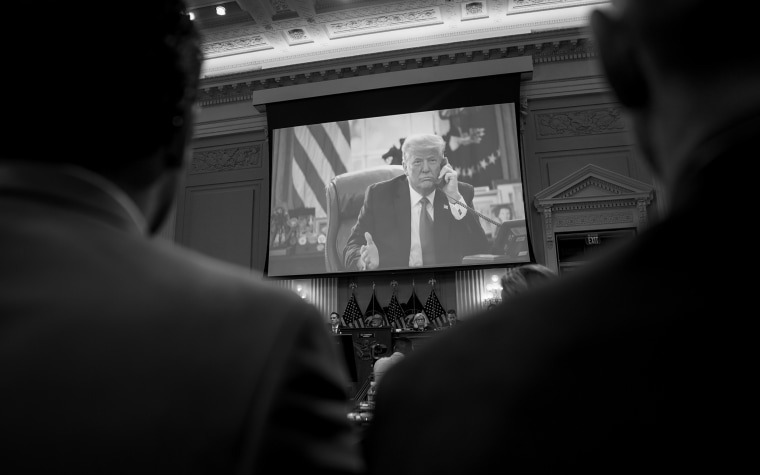As the Jan. 6 committee’s hearings have progressed, the public has heard effectively nothing from congressional Republican leaders about the proceedings. That’s not an accident: Before the public hearings even began, GOP officials settled on a specific strategy that called on Republicans to treat the committee as irrelevant, unworthy of ferocious pushback.
Donald Trump, however, just can’t seem to help himself.
After the panel’s televised hearings began, the former president began by taking issue with Ivanka Trump’s testimony. The Republican soon after issued a weird and rambling 12-page memo that relied a little too heavily on a discredited “documentary.”
Late last week, at a Faith and Freedom Coalition event, Trump’s tantrum reached a new level as he accused the bipartisan committee of “knowingly spinning a fake and phony narrative,” though neither he nor anyone on his team have produced any evidence of the committee getting anything wrong.
At another point, the Republican told a supportive crowd that some of the witnesses may have said critical things about him, but it was because “they got a little tired” during lengthy testimony.
But NBC News highlighted a claim that stood out for me as especially interesting.
Former President Donald Trump on Friday accused the House Jan. 6 committee of running sensationalized hearings that are making use of “doctored” video and selective editing that are presenting a warped picture of the assault on the Capitol, though he did not provide evidence.
The former president specifically argued that the investigators’ conclusions are based “on video that has been deceptively edited, misleadingly cut.”
What I love about this argument is the extent to which it does Trump no favors.
Right off the bat, drawing fresh attention to the video excerpts — he might’ve been referring to footage of rioters, but in context, it was almost certainly in reference to filmed deposition testimony — is the opposite of what the Republican wants. After all, those depositions feature members of Trump’s own team, and even his own family, making brutal observations — under oath — about the former president’s indefensible actions.
The more attention the depositions receive, the worse it is for the guy bringing attention to the depositions.
But making matters worse is the obvious challenge: If Trump believes the original videos have been “deceptively edited” and “misleadingly cut,” he’s welcome to try to prove it.
But he can’t, so he won’t. Instead, the former president is effectively telling his followers that the deposition footage is unreliable — because he says so.
I don’t doubt that for many of his diehard acolytes, that will be enough, but persuading a more mainstream audience will likely require a little more.

